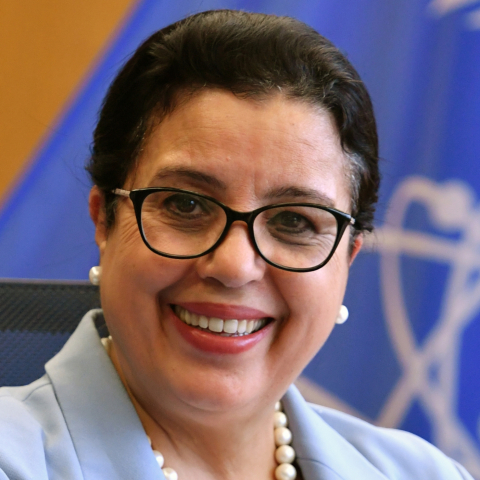
Governance

Global level
UN-Nutrition is governed by a steering committee at the global level, which is led by a chair. The chair is a senior leader from one of the Member Agencies and serves a 2-year rotational term. At present, Najat Mokhtar, Deputy Director General and head of the Department of Nuclear Sciences and Applications at the International Atomic Energy Agency (IAEA) is chairing UN-Nutrition. She superseded Máximo Torero Cullen, Chief Economist at the Food and Agriculture Organization of the United Nations (FAO), who served as the ad interim UN-Nutrition Chair until November 2023. The World Health Organization (WHO) was the first Member Agency to chair UN-Nutrition (2021-2022) through Naoko Yamamoto, its former Assistant Director-General for Universal Health Coverage/Healthier Populations.

Najat Mokhtar
Current UN-NUTRITION CHAIR
Deputy Director General and head of the Department of Nuclear Sciences and
Applications
IAEA
The steering committee is comprised of the nutrition leads of 7 agencies, including the 5 founding members: the Food and Agriculture Organization of the United Nations (FAO); the International Fund for Agricultural Development (IFAD); the United Nations Children’s Fund (UNICEF); the World Food Programme (WFP); and the World Health Organization (WHO). The other two agencies represented on the committee serve on a 2-year rotational basis. At present, the International Atomic Energy Agency (IAEA) and the CGIAR System Organization are rotational members.
Meet the steering committee members
Country level
UN country teams jointly agree on their preferred way of collaborating under the UN-Nutrition umbrella. This applies to the composition, stewardship and working modalities of UN-Nutrition, taking into consideration the local context and priorities.
As a joint initiative between several UN agencies, UN-Nutrition creates opportunities to link long-term development and emergency nutrition interventions and build the resilience of vulnerable communities.
UN-Nutrition can encourage agencies to pool their resources while also operationalizing the nexus between humanitarian, development and peace interventions to target underlying and institutional factors that lead
to malnutrition.






